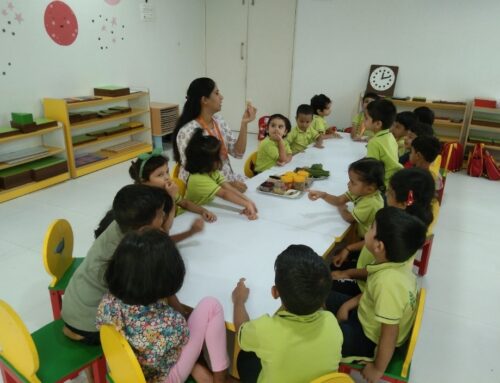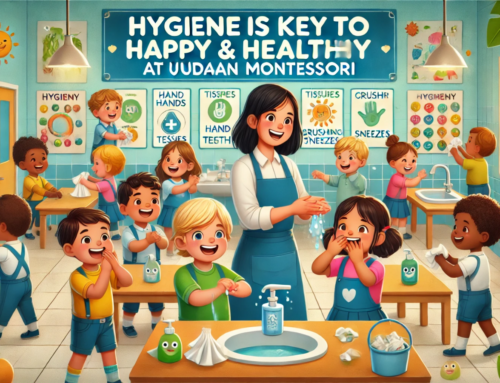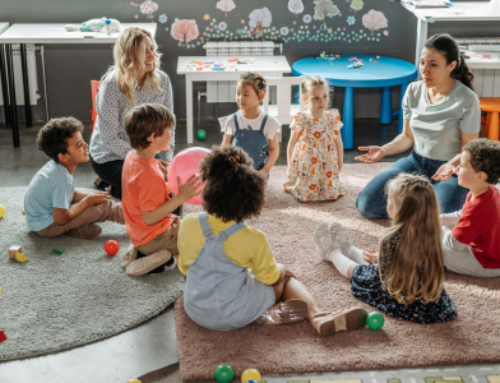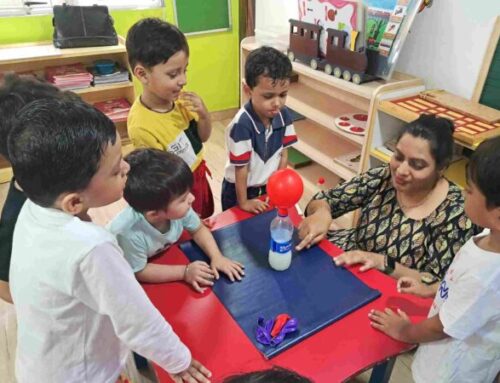As the world becomes increasingly digital, the importance of privacy for children, especially in educational settings like Montessori, is more critical than ever. With technology integrated into the classroom and the rise of online learning, ensuring that children’s personal information remains secure is a growing concern for parents, educators, and administrators alike. At Uudaan Montessori, we believe that creating a safe environment for children includes protecting their privacy while fostering a rich learning experience. In this blog, we’ll explore emerging trends in children’s privacy within Montessori education and offer practical tips for parents and educators.
Understanding the Importance of Privacy in Montessori Education
Montessori education is built on the foundation of respect for the child, including their individuality and autonomy. This respect extends to their personal information. As children engage in various activities, both in-person and online, they inevitably leave digital footprints. Ensuring that their information is protected is not just a legal obligation but a moral one that helps build trust between educators and families.
Trends Influencing Children’s Privacy in Montessori Settings
Increased Digital Learning Tools: The rise of digital platforms for education means more data collection. Montessori schools are utilizing various apps and online tools to enhance learning, track progress, and facilitate communication between teachers and parents. However, this can lead to potential data privacy issues. It’s crucial to choose platforms that prioritize security and comply with privacy regulations, such as COPPA (Children’s Online Privacy Protection Act).
Parental Concerns: As awareness around data privacy grows, so do parents’ concerns about how their children’s information is being used. Many parents are more vigilant about the types of technology their children engage with and the data these platforms collect. Montessori educators should be prepared to discuss privacy policies openly with parents, fostering a collaborative approach to addressing concerns.
Regulatory Changes: Governments and regulatory bodies are increasingly recognizing the importance of children’s privacy. New regulations are being implemented to protect children in educational settings, which affects how schools collect and manage data. Montessori institutions must stay informed about these changes to ensure compliance and protect students’ rights.
Technology Literacy: As children use technology from an early age, integrating private education into the curriculum becomes essential. Montessori educators can teach children about the importance of privacy, how to protect their information, and the basics of digital citizenship, preparing them to navigate a digital world safely and responsibly.

Tips for Protecting Children’s Privacy in Montessori Education
Choose Secure Digital Tools: When selecting digital tools and platforms for educational purposes, prioritize those with strong security measures. Look for apps and software that are transparent about their data collection practices and offer robust privacy settings. Always read privacy policies and ensure they align with Montessori values.
Educate Children about Privacy: Integrate privacy education into the curriculum. Teach children about personal information, what constitutes private data, and why it should be protected. Use age-appropriate language and scenarios to make the concept relatable. Activities could include role-playing how to respond if someone asks for personal information or understanding what to share online.
Establish Clear Communication with Parents: Transparency with parents is crucial. Keep them informed about the digital tools being used in the classroom, the type of data collected, and how it will be stored and protected. Hosting workshops or informational sessions can help parents understand privacy issues and the steps taken to safeguard their children’s information.
Implement Strong Data Management Practices: Montessori institutions should have clear policies regarding data collection, storage, and access. Limit the data collected to only what is necessary for educational purposes and regularly review these policies. Ensure that all staff members are trained in data privacy practices and understand their responsibilities in protecting children’s information.
Use Parental Controls: Encourage parents to use parental controls on devices that children use for educational purposes. These controls can help monitor and limit access to inappropriate content and ensure that children are not oversharing personal information online.
Create a Privacy-Friendly Classroom Environment: In addition to digital tools, consider physical privacy in the classroom. Ensure that personal information (like attendance records or assessment results) is stored securely and only shared with authorized personnel. Develop a culture of respect for privacy among students and staff, encouraging everyone to be mindful of the information they share.
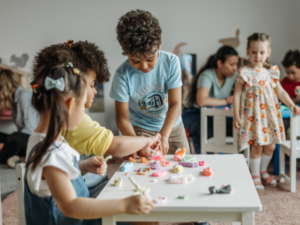
Conclusion
The future of children’s privacy in Montessori education is a pressing concern that requires collaboration between educators, parents, and policymakers. By understanding emerging trends and implementing practical strategies, Montessori institutions like Uudaan Montessori can create a safe and nurturing environment where children can thrive. At the same time, their privacy is respected and protected.
As we embrace technology in education, let’s commit to prioritizing the well-being and security of our children. By fostering a culture of privacy awareness and responsibility, we not only protect their personal information but also empower them to navigate the digital world confidently. After all, at Uudaan Montessori, we believe in nurturing not just the minds but also the privacy and security of our children as they embark on their learning journeys. For more information, contact us and take the first step toward a secure and enriching educational experience for your child.

